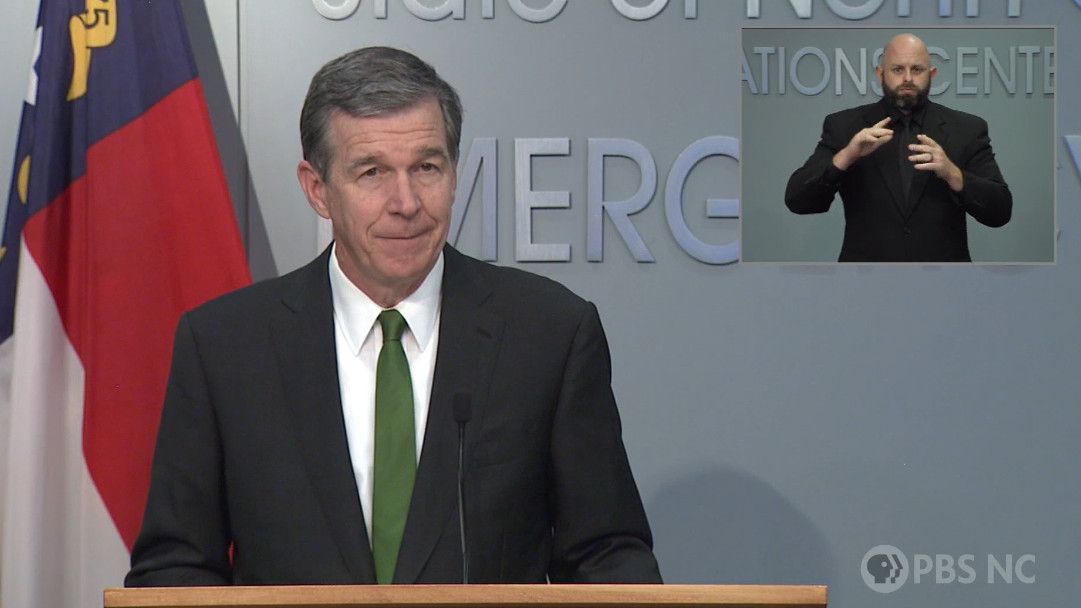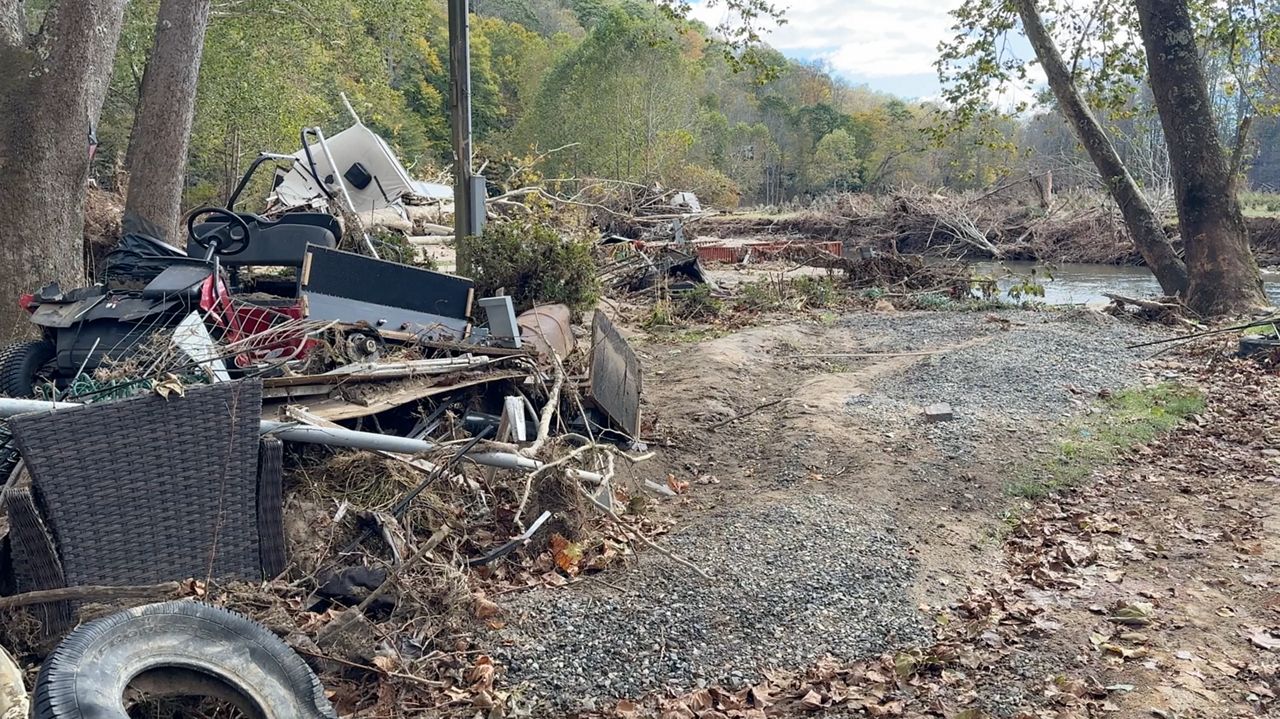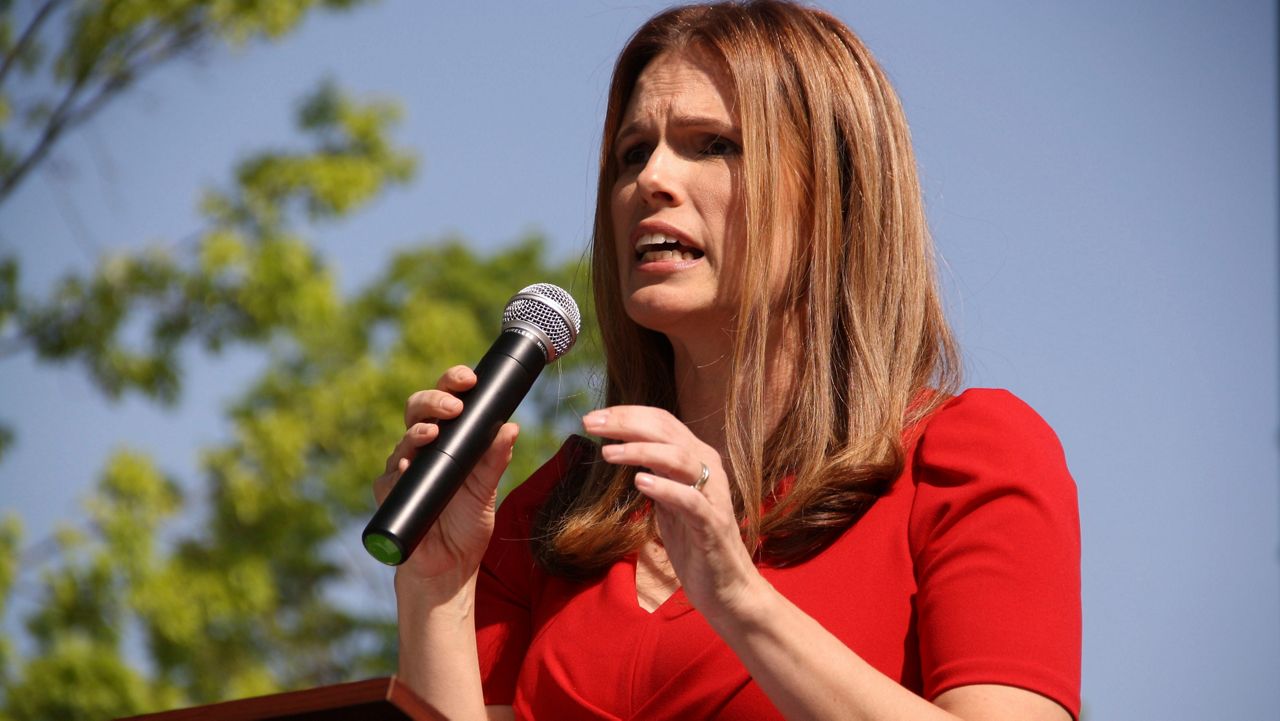NORTH CAROLINA — The State of North Carolina has $5.7 billion in federal American Rescue Plan funds to spend over the next five years.
On Wednesday, Gov. Roy Cooper laid out his plan for how he hopes the state can spend the money, with big ticket items like a new college scholarship program, more than a billion dollars to expand broadband and hundreds of millions for schools, housing and water infrastructure.
"This pandemic brought us a once-in-a-generation challenge. And these funds from the American Rescue Plan have brought us a once-in-a-generation opportunity. Let’s use them to make transformational change for our state," Cooper said.
"We can revolutionize North Carolina. We can train workers, educate students, connect communities and improve health. We’re building a bridge from response to recovery," he said.
The governor's ambitious plan will have to go to the General Assembly, where the Republican-led House and Senate will have to approve any budget for the billions of dollars in recovery funding.
This $5.7 billion is in addition to the $3.2 billion sent directly to local governments in North Carolina. The state has to spend the money by the end of 2026.
The proposal includes new money for North Carolina's Extra Credit grants, a program started by Republicans in the legislature to send direct relief to parents. Cooper's plan for Extra Credit Grants 2.0 would set aside $250 million to give $250 or $500 grants to families.
Families earning $15,000 to $30,000 could get $500 grants, with families bringing in up to $60,000 getting $250 in the plan.
State Budget Director Charlie Perusse said those grants could reach about 660,000 families in the state.
Cooper also proposed spending $350 million on N.C. Guarantee Scholarships. The scholarships would give $6,000 to students from families who make less than $60,000 a year. The scholarships would phase out for students whose families make more than $75,000 a year.
The program would be open to all full- and part-time students at North Carolina's public universities and community colleges. Perusse said the scholarships could help more than 72,000 students in the state.
"We're seeing real success in recruiting good-paying jobs, with dozens of companies moving to or expanding in North Carolina in the last few months, with a lot more to come. But they need skilled workers to fill the positions," Cooper said. "We should match those great jobs with our own homegrown workers and with these guaranteed scholarships we can do it."
The proposal also includes hundreds of millions for pre-K through high school education.
"The funds will develop a skilled educator pipeline and build educator capacity, support Science of Reading literacy coaches and build a strong foundation for North Carolina's children age birth to five by expanding N.C. pre-K and investing in home-based early childhood literacy interventions," according to a statement on the budget.
Cooper's budget plan doesn't just fund education and water treatment plants. He also has some money in there for the Charlotte Motor Speedway and the symphony in Raleigh.
The proposal includes $45 million for motorsports, with $10 million each for repairs and improvements to North Carolina's three big NASCAR tracks. It also gives $10 million in grants for smaller tracks around the state and $5 million for a new "motorsports and moonshine heritage trail."
"We know that motorsports is a $5 billion industry in North Carolina and we're the proud home of NASCAR," Perusse said.
The plan also sets aside $60 million for the arts. That includes $45 million in grants for museums, libraries and cultural centers, $2.5 million each for the symphony and North Carolina Museum of Art and $10 million to build sound stages and sets for the film industry.
"An unprecedented pandemic requires unprecedented investment. If we meet this moment, we will build a stronger and more equitable future that can help all North Carolinians thrive," Cooper said.
Here are some of the highlights from the governor’s budget proposal:
Extra Credit Grants 2.0
“Provides $250 million in grants to low- and middle-income families with children to help alleviate widespread financial hardship across the state. The Department of Revenue (DOR) will distribute grants of $250 or $500 to eligible families, with lower-income families eligible for the higher amount.”
Affordable Housing
“Provides $575 million to address North Carolina’s housing needs exacerbated by the COVID-19 pandemic, with an emphasis on increasing housing affordability and availability.”
Sound Basic Public Education/Early Childhood
“Provides $300 million to increase access to a sound, basic education for North Carolina’s children by building the educator pipeline, expanding N.C. pre-K, supporting high-quality child care and promoting early literacy development.”
Closing the Digital Divide
“Invests $1.2 billion in broadband access and affordability to close the digital divide in North Carolina. To reach this goal, these funds will provide access to affordable, high-speed internet in every corner of the state and will ensure high-speed internet is equitably adopted and that residents are able to access education, healthcare and business opportunities.”
Lead and Asbestos Remediation in Schools
“Provides $160 million for lead and asbestos testing and abatement in North Carolina public schools and child care facilities.”
Rural Downtown Transformation Grants
“Provides $175 million to the Department of Commerce (DOC) Rural Economic Development Division (REDD) to enable local governments in rural and distressed communities to fully leverage resources toward enhancing their communities’ prospects for economic growth.”
Water and Wastewater Investments
“Provides $800 million to the Department of Environmental Quality (DEQ) to support clean drinking water and less water pollution by fixing North Carolina’s water and wastewater systems. Of these funds, $440 million is reserved for water, sewer, and stormwater projects for distressed and at-risk water and wastewater units and $360 million is available for all units statewide.”
N.C. Guarantee Program (UNC and Community Colleges)
“Establishes the NC Guarantee program to provide a guaranteed scholarship of at least $6,000 to any North Carolina resident whose family income is less than $60,000. The amount of the guaranteed scholarship would phase out as family income increases up to $75,000.”
Hospitality Industry Business Assistance and Recovery Grants
“Invests $350 million to promote economic recovery in the hardest-hit industries across the state through two programs that target food services, accommodation, recreation and leisure, and personal services businesses. These funds will help these vital small businesses survive the COVID-19 pandemic and accelerate economic recovery in communities across the state.”









